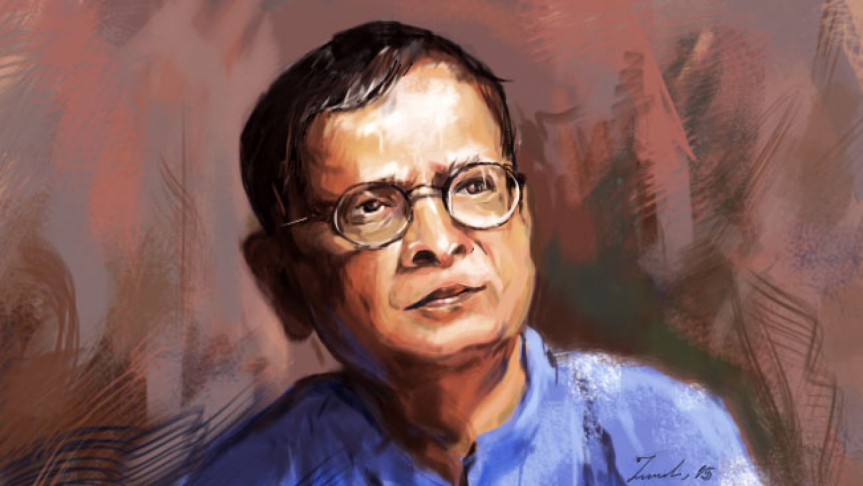Humayun Ahmed’s 68th birth anniversary today

Dhaka: The 68th anniversary of birth of the noted writer and filmmaker Humayun Ahmed will be observed on Sunday by his family, friends, and followers.
Different socio-cultural organisations planned several programmes to celebrate the day.
Television channels have been airing dramas and films written and directed by Humayun Ahmed to pay respect to the virtuoso.
Humayun was born on 13 November, 1948 in Mohanganj of Netrokona and died on 19 July, 2012 at Bellevue Hospital in New York of the USA after a long battle with cancer.
His first novel Nondito Noroke(In Blissful Hell), which was published in 1972, generated a lot of critical acclaims for portraying the lives and times of middle-class urban family. His second novel ‘Shonkhonil Karagar’ also kept the same vain.
But his dominance in the literary scene started with fictional series featuring recurring characters such as Himu (15 novels), Misir Ali (10 novels) and less frequently, Shubhro.
Shaping of out of the box personas out of the flat faces in the crowd, somewhat representing the mismatch of the middle class with the modern times, and rather celebrating the difference, the smallness, and his unparallel power to create humour had been his repertory that had also earned him fame in TV drama, and later in the big screens.
Humayun’s first television drama was Prothom Prohor (1983), directed by Nawazesh Ali Khan. His first drama serial was Ei Shob Din Ratri (1985). This was followed by the comedy series Bohubrihi (1988), the historical drama series Ayomoy (1988), the urban drama series Kothao Keu Nei (1990), Nokkhotrer Raat (1996), and Aaj Robibar (1999).
Humayun also wrote several novels based on the Bangladesh Liberation War - Aguner Poroshmoni, Srabon Megher Din, and Jyotsna O Jononir Golpo. His romantic novels included: Badol Diner Prothom Kodom Phool, Noboni, Aj Dupure Tomar Nimontran, and Tumi Amai Dekechhile Chhutir Nimontrane.
He wrote four autobiographies - Hotel Graver Inn, Amar Chelebela, Rong Pencil and Fountain Pen.
He directed films based on his own stories. His first film, Aguner Poroshmoni, based on the Bangladesh Liberation War, won the National Film Award in a total of eight categories, including the award for Best Picture and Best Director.
His last directed film, Ghetuputra Kamola, the story of a teenage boy, was set in the British colonial period.

 NTV Online
NTV Online




